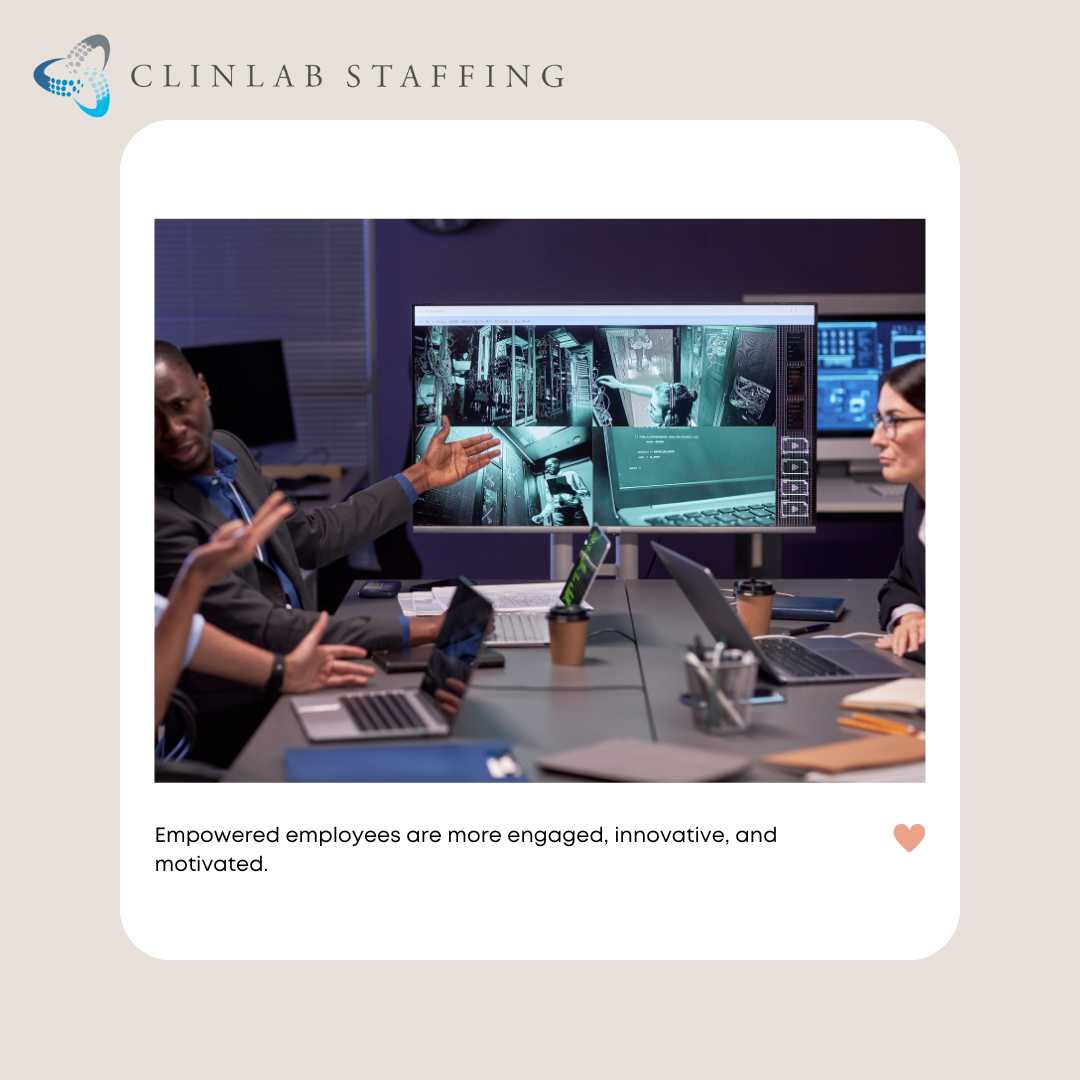As life science companies have emerged in the years since the COVID-19 pandemic, they find themselves at a pivotal place. The rapid adoption of remote and hybrid work models has fundamentally changed how teams operate. While some companies have clung to tighter control and oversight, the real opportunity lies in embracing trust, autonomy, and empowerment to create a more satisfied, motivated, and innovative workforce.
The Shift Toward Trust and Autonomy
During the pandemic, many life science companies adjusted to remote work, relying on regular check-ins, video calls, and task-tracking tools to ensure productivity. While this approach kept things running smoothly during uncertain times, it’s now time for companies to step back and rethink how they manage their teams in a post-pandemic world.
The solution? Shifting focus from micromanaging daily tasks to trusting employees to own their work, make informed decisions, and deliver results.
Why Empowering Employees Drives Satisfaction
 When life science professionals—whether they’re in R&D, regulatory roles, or lab teams—are given the autonomy to manage their own work, they feel more invested in their projects and more confident in their ability to contribute meaningfully. This sense of ownership leads to higher job satisfaction and better overall performance.
When life science professionals—whether they’re in R&D, regulatory roles, or lab teams—are given the autonomy to manage their own work, they feel more invested in their projects and more confident in their ability to contribute meaningfully. This sense of ownership leads to higher job satisfaction and better overall performance.
In a 2023 survey, employees who felt trusted and empowered reported being significantly more satisfied with their work and were more likely to stay with their employer. In an industry where top talent is critical to success, empowering employees can be a game-changer.
The Unique Strengths of Life Science Professionals
Life science companies have the advantage of employing highly skilled, knowledgeable professionals who are passionate about making a difference. Whether they’re working on groundbreaking research or managing complex regulatory processes, these employees thrive when they’re given the freedom to innovate, experiment, and solve problems on their own terms.
By stepping back and allowing teams to take ownership of their tasks, companies unlock the full potential of their workforce. Encouraging autonomy not only boosts morale but also sparks creativity and drives the kind of innovation that the life sciences industry depends on.
Practical Ways to Foster Autonomy and Trust
To create a more empowered workplace and move away from micromanagement, life science companies can take these steps:
- Set Clear Goals and Trust the Process
Rather than focusing on how tasks are completed, place greater emphasis on setting clear goals and outcomes. By clearly communicating expectations and then trusting employees to determine the best path forward, managers can foster a sense of ownership and pride in the work being done. - Encourage Collaboration and Open Dialogue
Create a culture where employees feel comfortable sharing ideas, challenges, and solutions. Open communication builds trust and allows managers to stay informed without needing to micromanage. It also encourages teams to collaborate freely, leading to more innovative approaches to problem-solving. - Provide the Right Tools and Flexibility
Equip employees with the tools, resources, and flexibility they need to succeed. Whether it’s the freedom to work remotely, the ability to adjust work hours, or access to the latest technology, giving employees the flexibility to work in a way that suits them empowers them to perform at their best. - Recognize and Reward Initiative
When employees feel their efforts are recognized, they’re more likely to take ownership of their work. Celebrate initiative and reward those who go above and beyond. By acknowledging their contributions, you reinforce a culture of trust and encourage others to follow suit.
Why This Matters for the Future of Life Sciences
The life sciences industry is built on innovation, agility, and the ability to adapt quickly to change. By moving away from micromanagement and creating an environment where employees feel empowered and trusted, companies can unlock new levels of creativity, productivity, and job satisfaction.
As life science companies continue to face complex challenges—from developing cutting-edge therapies to navigating evolving regulatory landscapes—empowered teams are better equipped to rise to the occasion. Trusting employees to take charge of their work not only improves day-to-day operations but also positions the company for long-term success.
Embracing a Positive Management Culture
The post-pandemic world offers life science companies a unique opportunity to reshape their management practices. By letting go of the old micromanagement habits and embracing a culture of trust, autonomy, and open communication, companies can create a work environment that attracts top talent, fosters innovation, and drives success.
Ultimately, the key to building a thriving, satisfied workforce is simple: empower your teams, trust their expertise, and give them the freedom to do their best work. When employees feel valued and supported, they’ll reward that trust with loyalty, innovation, and outstanding results